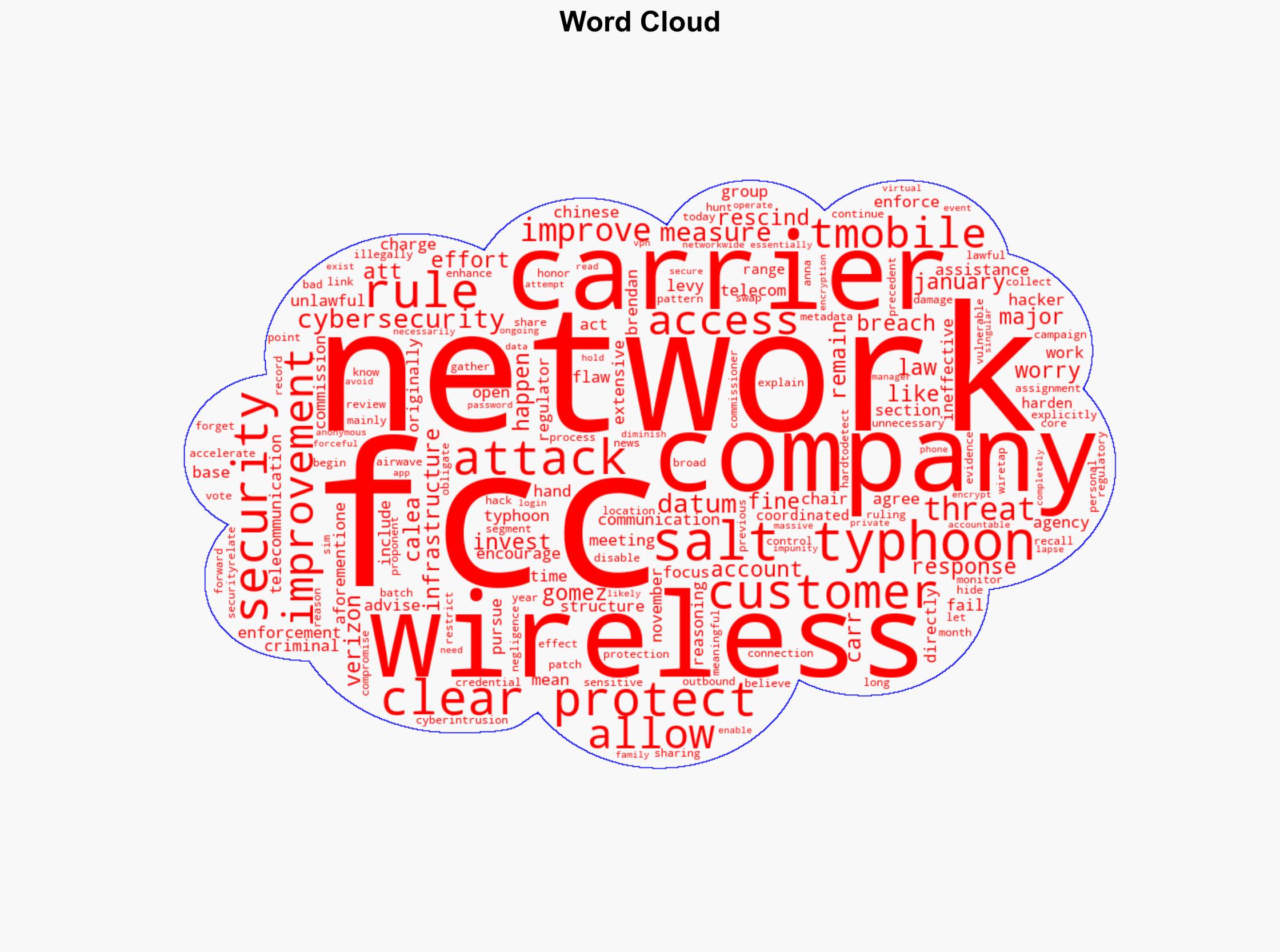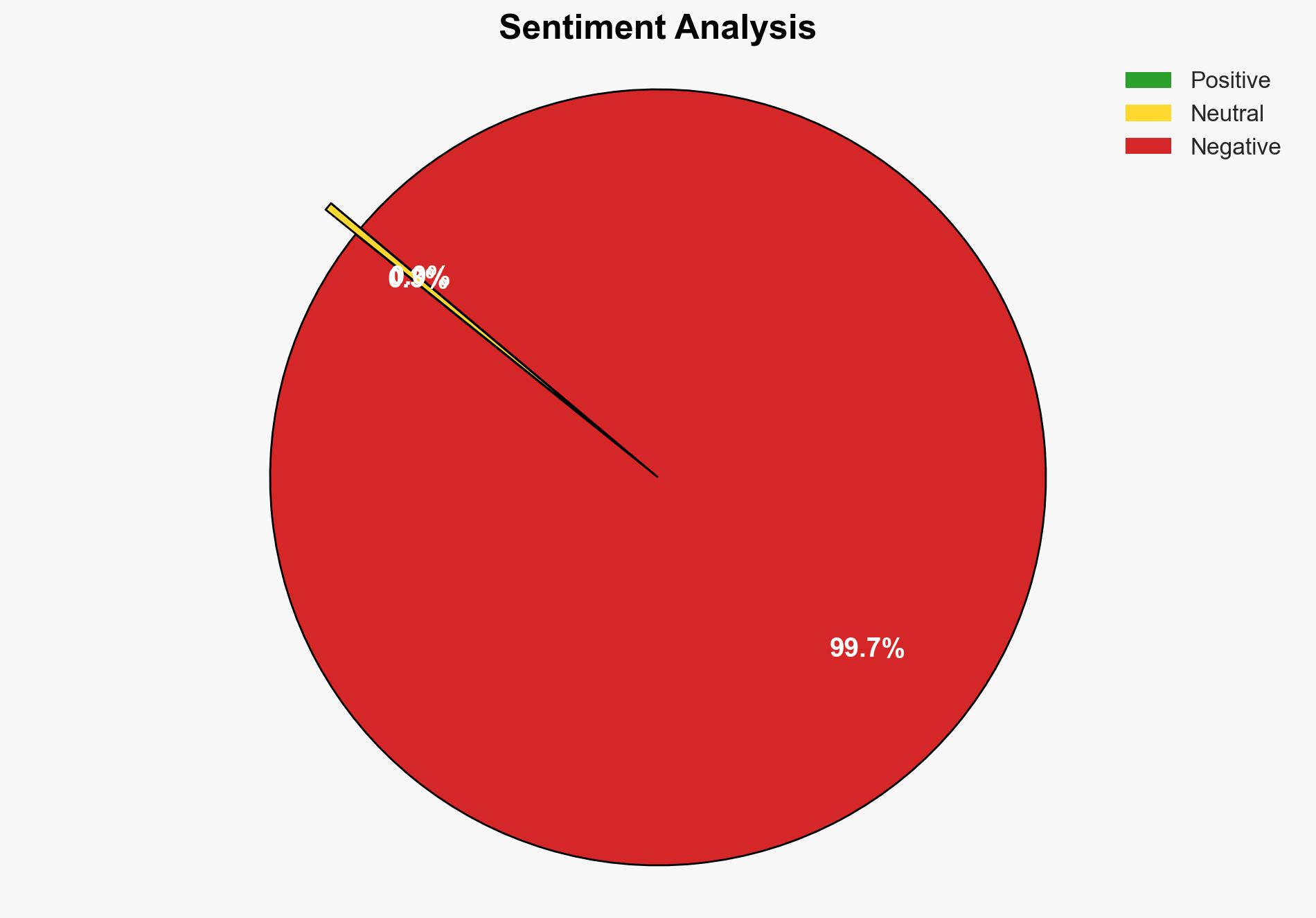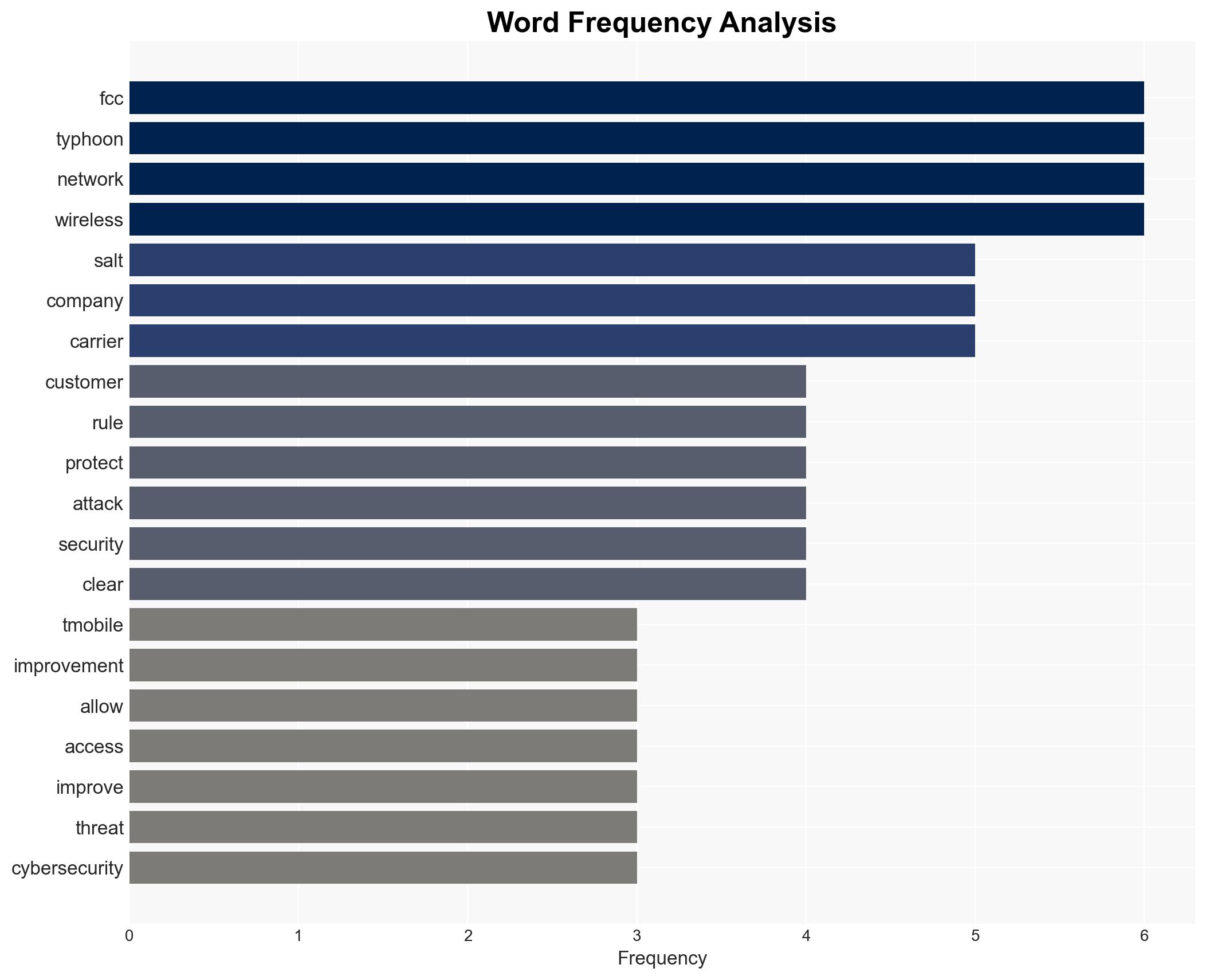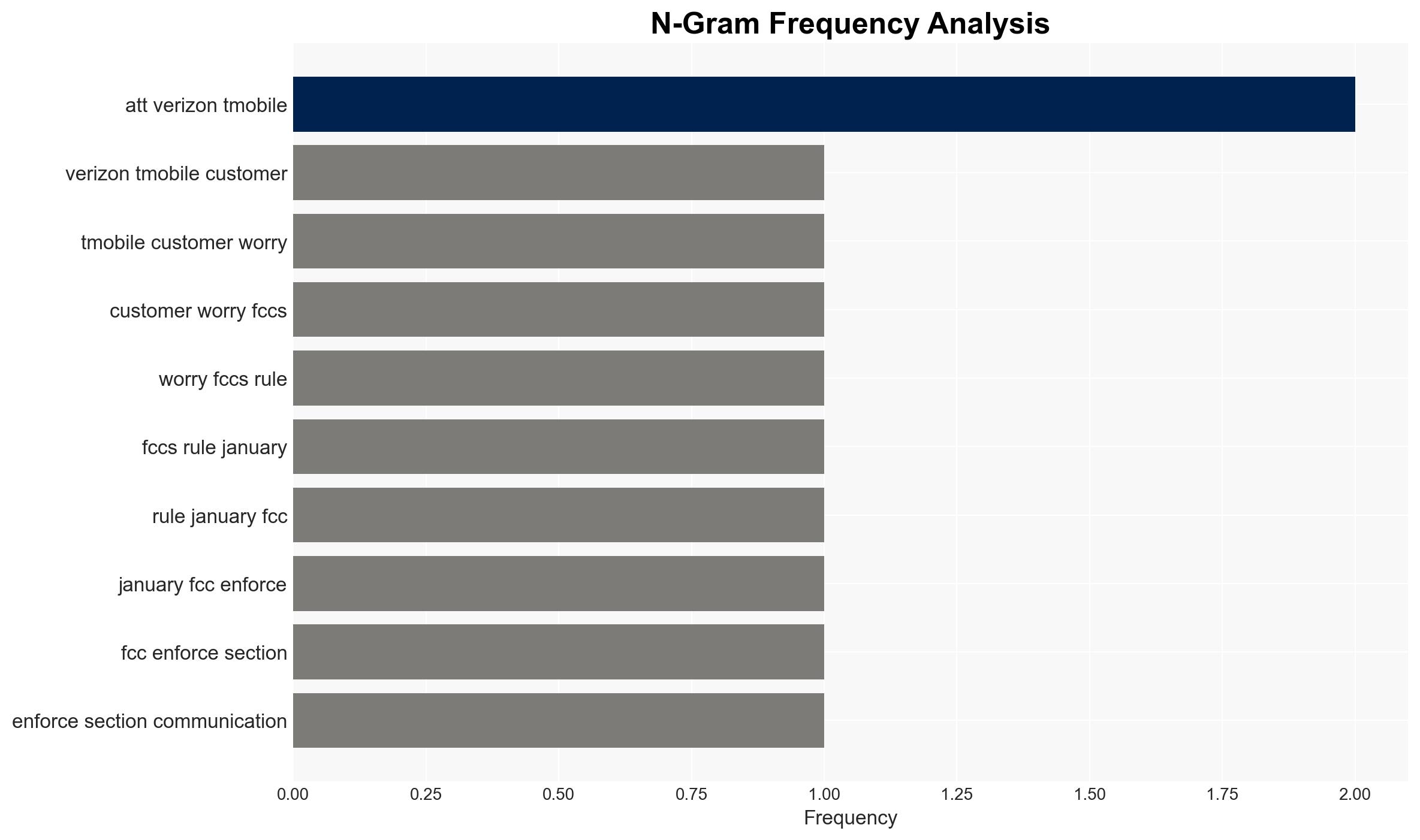FCC Ruling Raises Security Concerns for AT&T, Verizon, and T-Mobile Customers Amid Cyber Threats
Published on: 2025-11-26
AI-powered OSINT brief from verified open sources. Automated NLP signal extraction with human verification. See our Methodology and Why WorldWideWatchers.
Intelligence Report:
1. BLUF (Bottom Line Up Front)
The FCC’s ruling on enforcing the Communications Assistance for Law Enforcement Act (CALEA) is likely to increase cybersecurity pressures on major telecom companies like AT&T, Verizon, and T-Mobile. The most supported hypothesis is that the ruling will lead to improved security measures, albeit with potential short-term vulnerabilities. Confidence Level: Moderate. Recommended action includes proactive engagement with telecom providers to ensure compliance and enhanced security protocols.
2. Competing Hypotheses
Hypothesis 1: The FCC’s ruling will compel telecom companies to enhance their cybersecurity measures, reducing vulnerabilities to cyber threats like those posed by the Salt Typhoon group.
Hypothesis 2: The ruling will have limited impact due to potential non-compliance or inadequate enforcement, leaving telecom networks vulnerable to continued cyber threats.
Hypothesis 1 is more likely given the regulatory pressure and potential penalties for non-compliance, which historically drive corporate behavior. However, the effectiveness of these measures depends on the FCC’s enforcement capabilities and the telecom companies’ willingness to invest in long-term security improvements.
3. Key Assumptions and Red Flags
Assumptions include the belief that regulatory pressure will lead to improved security and that telecom companies will prioritize compliance. Red flags include potential resistance from telecom companies due to cost implications and the possibility of inadequate enforcement by the FCC. Deception indicators could arise if companies publicly commit to security improvements but fail to implement them effectively.
4. Implications and Strategic Risks
The ruling could lead to improved cybersecurity infrastructure, reducing the risk of data breaches. However, if companies fail to comply, there could be significant economic and informational risks, including loss of consumer trust and potential financial penalties. Politically, ineffective enforcement could lead to criticism of the FCC and calls for more stringent regulations.
5. Recommendations and Outlook
- Telecom companies should be encouraged to invest in robust cybersecurity measures and collaborate with the FCC to ensure compliance.
- Best-case scenario: Telecom companies enhance security, reducing cyber threats significantly.
- Worst-case scenario: Non-compliance leads to continued vulnerabilities and potential large-scale data breaches.
- Most-likely scenario: Incremental improvements in security with ongoing challenges in enforcement and compliance.
6. Key Individuals and Entities
Brendan Carr (FCC Chair), Anna Gomez (FCC Commissioner), AT&T, Verizon, T-Mobile, Salt Typhoon (hacker group).
7. Thematic Tags
Structured Analytic Techniques Applied
- Adversarial Threat Simulation: Model and simulate actions of cyber adversaries to anticipate vulnerabilities and improve resilience.
- Indicators Development: Detect and monitor behavioral or technical anomalies across systems for early threat detection.
- Bayesian Scenario Modeling: Quantify uncertainty and predict cyberattack pathways using probabilistic inference.
- Network Influence Mapping: Map influence relationships to assess actor impact.
Explore more:
Cybersecurity Briefs ·
Daily Summary ·
Support us





